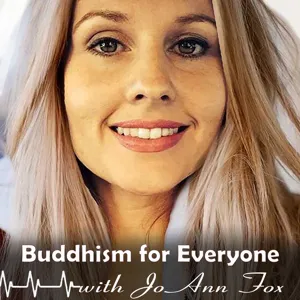Mindfulness can be used to train the mind: to make the mind more peaceful and see your world differently. Mindfulness, in this way, is used to remember things we’ve learned and intend to put into practice. For example, we may have heard the teaching to gather all blame into one--our mental afflictions. We might agree that there are no external problems or enemies; our problems come from our mental afflictions, such as anger, attachment, ignorance, pride, or greed. To practice mindfulness, we could then determine to recall this wisdom when we start to get angry or upset. Mindfulness is used to remember our determination to practice this wisdom and not blame another person or situation for our unpleasant feelings. This practice helps us let the unpleasant feelings pass without clinging to them and blaming others.
Mindfulness is a powerful tool for creating a happy mind.
Always Rely on a Happy Mind (One of Atisha’s 59 slogans of training the mind.)
The Story of the Elephant Called Paveyyaka
While residing at the Jetavana monastery, the Buddha uttered Verse (327) of this book, with reference to the elephant, called Paveyyaka.
Paveyyaka when young was very strong; in due course, he became old and decrepit. One day, as old Paveyyaka went into a pond he was stuck in the mire and could not get on to the shore. When King Pasenadi of Kosala was told about it, he sent an elephant trainer to help the elephant get out of the mire. The elephant trainer went to the site where the elephant was. There, he made the musicians strike up a martial tune. Hearing the military airs, the elephant felt as if he were in a battlefield; his spirits rose, he pulled himself with all his might, and was soon out of the mire.
When the bhikkhus told the Buddha about this he said, "Bhikkhus! Just as that elephant pulled itself out of the mire, so also, must you all pull yourselves out of the mire of moral defilements."
Then the Buddha spoke in verse as follows:
Take delight in mindfulness,
guard your mind well.
As an elephant stuck in mire pulls itself out,
so also, pull yourself out of the mire of moral defilements.
—Buddha, Dhammapada, Verse 327:
“If in battle your sword were to fall from your hand, you would without hesitation immediately retrieve it out of fear for your life. Likewise, when you battle the afflictions and lose the weapon of mindfulness (which does not forget the subjective and objective aspects of engaging in what is to be adopted and rejecting what is to be cast aside), you must immediately reapply mindfulness.”
—Je Tsongkapa,
Take delight in mindfulness,
guard your mind well.
As an elephant stuck in the mire pulls itself out,
so also pull yourself out of the mire of moral defilements.
—Buddha, The Dhammapada
References and Links
Buddha.The Dhammapada. Translated by Gil Fronsdale. (Kindle). Shambala, Boston and London, 2011. (Link)
Je Tsongkhapa. Great Treatise on the Stages of the Path to Enlightenment, by Je Tsongkhapa, Volume 2. (Kindle.)Translated by the Lamrim Chenmo Translation Committee. Joshua Cutler, Editor-in-Chief, and Guy Newlan, Editor, pp 187-197.
Buddha (1986).The Dhammapada: Verses and Stories. Translated by Daw Mya Tin, M.A. (Website). Edited by Editorial Committee, Burma Tipitaka Association Rangoon. Courtesy of Nibbana.com. For free distribution only, as a gift of dhamma.
https://www.tipitaka.net/tipitaka/dhp/verseload.php?verse=327
Find us at the links below:
https://www.facebook.com/Buddhismforeveryone
Join our private group at: https://www.facebook.com/groups/sanghatalk/
https://www.instagram.com/buddhism.with.joann.fox
